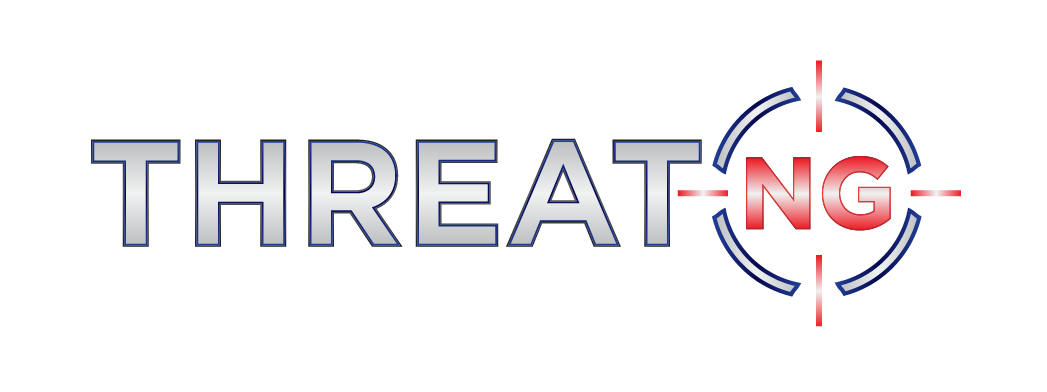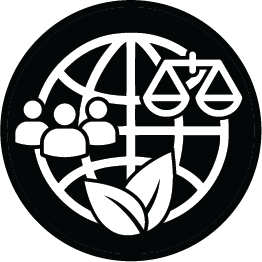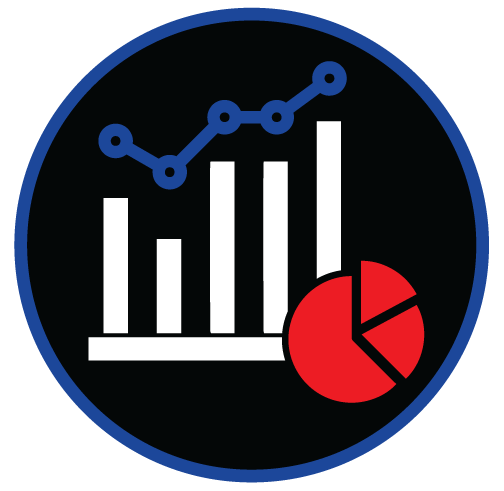

ESG Intelligence Repository: Empowering Proactive Risk Mitigation and ESG-Driven Decision-Making
Illuminating ESG Risks for Enhanced External Attack Surface Management, Digital Risk Protection, Security Ratings, and Third-Party Risk Management
DarCache ESG, a cutting-edge intelligence repository aggregating ESG violation data, emerges as an indispensable solution for organizations navigating the complex landscape of ESG-related risks. By providing comprehensive insights into companies' ESG performance, including violations, penalties, and offense details, DarCache ESG empowers security and risk professionals to proactively manage external attack surfaces, strengthen digital risk protection, refine security ratings, and conduct robust third-party risk assessments.

DarCache ESG: ThreatNG's Comprehensive Repository of Global ESG Violations
DarCache ESG, ThreatNG's dedicated ESG Intelligence Repository, provides organizations with critical insights into a broad spectrum of global ESG violations. This repository systematically compiles and analyzes data on offenses ranging from anticompetitive practices to governance breaches, enabling proactive risk assessment and compliance monitoring. By highlighting the potential impacts of these violations, DarCache ESG empowers businesses to strengthen their ethical frameworks, mitigate reputational damage, and ensure adherence to evolving regulatory standards.
Actions that unfairly limit market competition, such as price-fixing, monopolies, and bid-rigging, constitute these violations. Innovation is stifled, consumers are harmed through inflated prices, and market efficiency is distorted. Legal penalties can be imposed on organizations involved in such practices, undermining fair trade principles.
Actions that harm the natural environment, such as pollution, illegal waste disposal, and habitat destruction, constitute such violations. Climate change damages ecosystems, and substantial fines and regulatory action can result. Organizations are increasingly held accountable for their environmental footprint.
Healthcare Compliance Violations
This area encompasses breaches of healthcare regulations, including fraud, patient privacy violations, and improper handling of controlled substances. When these occur, patient safety is compromised, the integrity of healthcare systems is undermined, and severe penalties can result. Strict adherence to healthcare compliance is essential.
Consumer Protection Violations
Deceptive, unfair, or unsafe practices that harm consumers define this category. False advertising, product safety failures, and discriminatory sales tactics are examples. Consumer trust is eroded, and businesses face legal repercussions and reputational damage.
Illegal or unethical financial activities include fraud, money laundering, and insider trading. They can undermine financial stability, erode investor trust, and result in severe legal penalties. Robust financial governance is essential to prevent such offenses.
Safety and Security Violations
Failure to protect individuals and assets from harm, including workplace accidents, product safety defects, and data breaches, represent these violations. Lives are endangered, reputations are damaged, and substantial legal liabilities can result. Organizations must prioritize safety and security to mitigate these risks.
Labor and Employment Violations
This heading covers various offenses related to workers’ rights and fair employment practices. These include discrimination, wage violations, unsafe working conditions, and breaches of labor laws. These offenses damage employee morale, create legal liabilities, and harm a company's social standing.
Government Contracting Irregularities
This heading covers various offenses related to workers’ rights and fair employment practices. These include discrimination, wage violations, unsafe working conditions, and breaches of labor laws. These offenses damage employee morale, create legal liabilities, and harm a company's social standing.
General Governance and Ethical Breaches
This category includes various unethical or illegal actions that undermine good corporate governance. Bribery, conflicts of interest, and lack of transparency are examples. These actions can erode stakeholder trust, damage a company’s reputation, and result in legal and financial consequences. Strong ethical leadership and robust governance structures are crucial for prevention.
Mitigate ESG-Related Risks with DarCache ESG
Uncover Hidden Vulnerabilities
Identify potential weaknesses in external attack surfaces and third-party relationships arising from ESG non-compliance, enabling proactive remediation.
Strengthen Digital Risk Protection
Detect and mitigate emerging threats from ESG-related controversies and negative publicity, safeguarding brand reputation and financial stability.
Enhance Due Diligence
Incorporate ESG performance into risk assessments and security ratings to make informed decisions about investments, partnerships, and vendor relationships.

Unlocking the Link Between ESG Performance and Cybersecurity
DarCache ESG redefines risk management by bridging the gap between traditionally separate domains of ESG performance and cybersecurity. This comprehensive intelligence repository empowers organizations to navigate the intricate relationship between these two realms, proactively identifying and mitigating ESG-related vulnerabilities for a more resilient and sustainable future. By highlighting the interconnectedness of ESG and security, DarCache ESG enables a holistic approach to risk management, facilitating proactive threat management and informed decision-making. Below are the distinct advantages DarCache ESG offers for External Attack Surface Management, Digital Risk Protection, and Security Ratings.
External Attack Surface Management (EASM)
Identifying ESG-Related Vulnerabilities: ESG violations often expose underlying weaknesses in a company's operations and infrastructure. For example, a company fined for poor data security practices may have outdated systems or inadequate cybersecurity measures, creating potential entry points for attackers. DarCache ESG can highlight such risks, allowing for proactive mitigation.
Prioritizing Remediation Efforts: Not all vulnerabilities are created equal. By linking ESG violations to potential attack surface risks, security teams can prioritize remediation efforts based on an exploit's severity and potential impact.
Digital Risk Protection (DRP)
Early Warning System for Reputational Risks: ESG controversies can quickly escalate into online attacks, boycotts, and negative publicity. By monitoring ESG violations, organizations can identify brewing reputational threats and take proactive measures to mitigate damage.
Understanding ESG-Related Threat Actors: Certain ESG violations can attract the attention of specific hacktivist groups or other threat actors. An ESG violation repository helps organizations anticipate and prepare for attacks motivated by ESG concerns.
Security Ratings
Incorporating ESG Performance into Risk Assessments: ESG performance is increasingly recognized as a critical indicator of overall organizational health and risk. DarCache ESG provides quantitative data on ESG violations, allowing for a more nuanced and comprehensive security rating.
Benchmarking ESG Performance: The repository enables comparison of ESG-related security risks across industries and peers. This allows organizations to identify areas for improvement and demonstrate their commitment to responsible business practices.

Redefining Risk Management: Holistic ESG Integration for a Sustainable Future
DarCache ESG redefines risk management, transcending traditional financial and operational assessments and integrating ESG performance for a holistic evaluation. ESG data enhances due diligence, safeguards brand reputation by identifying and mitigating ESG-related threats, and fosters responsible business practices across the supply chain. It emerges as an indispensable solution for managing ESG-related risks, paving the way for an organization's more sustainable, ethical, and resilient future. Below are the specific advantages that DarCache ESG delivers in the realms of Brand Protection, Cloud and SaaS Exposure Management, Due Diligence, and Third-Party Risk Management.
Brand Protection
Safeguarding Reputation: ESG violations can severely damage a brand's reputation and consumer trust. DarCache ESG enables companies to proactively monitor ESG risks, identify potential controversies, and take preventive measures to protect their brand image.
Managing Brand Associations: By assessing the ESG performance of partners, sponsors, or influencers, organizations can ensure brand alignment and avoid associations with entities involved in ESG misconduct.
Cloud & SaaS Exposure Management
Evaluating Cloud and SaaS Providers: ESG considerations are vital when choosing cloud and SaaS providers. DarCache ESG helps assess providers' ESG practices, ensuring data security, ethical operations, and responsible resource management.
Mitigating Supply Chain Risks: ESG violations within a cloud or SaaS provider's supply chain can impact service availability, data integrity, and overall security. The repository allows organizations to identify and address these potential risks.
Due Diligence
Comprehensive Risk Assessment: ESG performance is a crucial component of due diligence. DarCache ESG provides valuable data to assess a company's ESG track record, enabling informed investment and partnership decisions.
Uncovering Hidden Liabilities: ESG violations can lead to financial penalties, legal disputes, and reputational damage. The repository helps uncover potential liabilities during due diligence, facilitating more thorough risk evaluations.
Third-Party Risk Management
Evaluating Third-Party ESG Performance: ESG violations within a company's supply chain or partner network can pose significant risks. DarCache ESG allows organizations to assess the ESG practices of third parties, mitigating potential reputational, operational, and financial risks.
Enforcing ESG Standards: Organizations can leverage the repository to set ESG expectations for third parties and monitor compliance, ensuring alignment with their ESG commitments.
DarCache Dark Web: Data and information gathered from the dark web, a part of the internet not indexed by search engines and can only be accessed using specialized software.
DarCache Ransomware: Data gathered to support the analysis and tracking of ransomware attacks and the threat actors behind them.
DarCache Rupture: A database of usernames, emails, and organizations that have been compromised in data breaches or other security incidents.
DarCache Vulnerability: Data and information gathered to support the analysis and tracking of known vulnerabilities and potential vulnerabilities in software, systems, and network infrastructure.
DarCache Mobile: Intelligence repository of mobile apps identifying exposed sensitive information such as authentication tokens, API keys, and private keys, helping organizations strengthen their security posture and reduce digital risk.
DarCache Bug Bounty: In-depth insight into worldwide bug bounty initiatives enables organizations to proactively use crowdsourced security research data to discover and address vulnerabilities.
DarCache 8-K: Leverage a unique collection of cybersecurity incident disclosures from publicly traded companies to proactively identify and mitigate threats, enhance your security posture, and gain a competitive edge across your external attack surface, digital risk protection, and security ratings initiatives.
DarCache Bank Identification Numbers (BIN): A database of essential information related to Bank Identification Numbers (BINs) used in financial transactions worldwide.


















